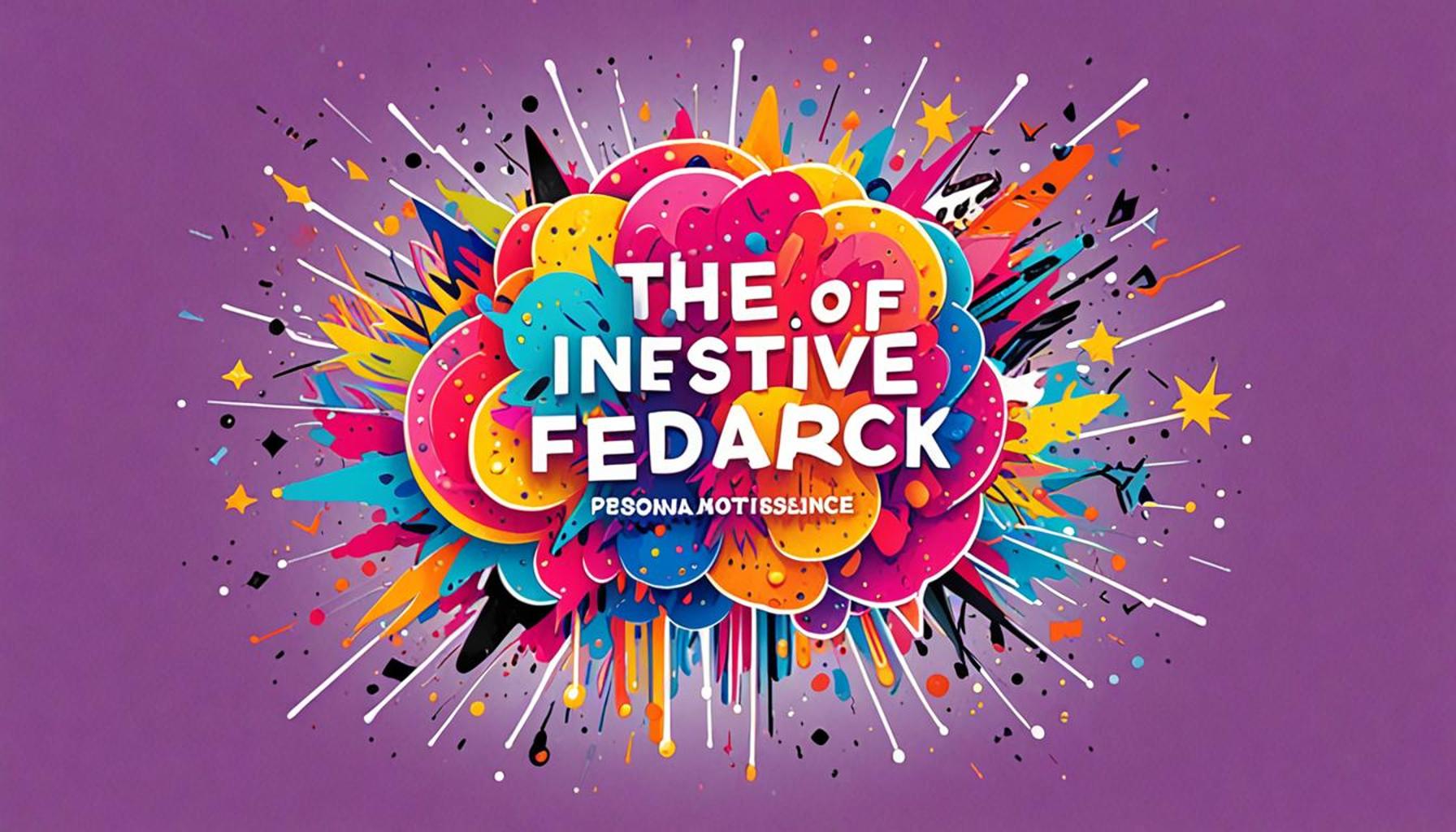Developing Active Listening Skills to Maximize the Use of Feedback

Understanding the Depth of Active Listening
In the complex tapestry of human interactions, effective communication serves as a vital thread, weaving connections between individuals in both personal and professional realms. Among the often-neglected skills that enhance our communication prowess lies active listening. Mastering this skill can profoundly influence how feedback is received and acted upon, ultimately shaping the quality of our relationships.
Active listening transcends the simple act of hearing; it embodies a commitment to fully engage in a conversation with the speaker. This engagement is composed of several essential elements that together create a nurturing communication environment:
- Attention: Provide your undivided attention to the speaker. This means putting away distractions, such as phones or laptops, to ensure that your focus remains on the individual communicating. In a bustling Nigerian work culture, where interruptions are common, consciously choosing to focus can set a positive tone.
- Clarification: Do not hesitate to ask questions that deepen your understanding of the message being conveyed. For instance, if a colleague shares a project insight, seek further information to clarify any ambiguities. This not only shows your eagerness to comprehend but also reinforces the speaker’s confidence.
- Non-verbal cues: Utilize body language to convey interest and engagement. Maintaining eye contact—common in many Nigerian communities—can signal respect and attentiveness. Leaning slightly forward or nodding in agreement further enhances your responsiveness during the conversation.
In Nigeria, where cultural dynamics significantly influence communication patterns, developing active listening skills can play a pivotal role in fostering positive interactions, both socially and in the workplace. By prioritizing active listening, individuals can:
- Build trust with colleagues and friends, establishing a rapport that encourages openness and honesty.
- Create a safe space for constructive feedback, allowing for personal and professional growth.
- Enhance problem-solving abilities by integrating diverse perspectives into decision-making.
As feedback plays an increasingly vital role in professional advancement, honing active listening skills becomes essential to thriving in collaborative environments. Investing time in developing this skill not only benefits individual career trajectories but also contributes to a more cohesive workplace atmosphere. This article will delve into various techniques and strategies that can be employed to cultivate active listening, encouraging a culture of communication that empowers everyone involved.
SEE ALSO: Click here to read another article
Techniques for Mastering Active Listening Skills
To truly reap the benefits of active listening, it is essential to adopt practical techniques that can enhance this skill in everyday interactions. Engaging in conscious practices not only improves one’s ability to absorb feedback but also fosters a positive environment conducive to open dialogue. Here are some effective strategies for mastering active listening skills:
- Empathetic Responses: Responding with empathy goes a long way in making the speaker feel valued. When a colleague shares their thoughts, validate their emotions by acknowledging their feelings. Phrases such as “I understand how you feel” or “That sounds challenging” can create a connection that encourages deeper conversation. In the Nigerian context, where emotional intelligence in communication is highly appreciated, exhibiting empathy can strengthen workplace relationships.
- Suspend Judgment: It is crucial to approach conversations with an open mind. Avoid jumping to conclusions or formulating responses while the other person is still speaking. Instead, give them the space to express their thoughts fully. This practice not only demonstrates respect but also allows for a clearer understanding of the feedback being offered. In cultures with diverse opinions and backgrounds, such as Nigeria, this technique fosters inclusivity and creativity.
- Reflective Listening: After the speaker has finished, paraphrase or summarize their key points to confirm your understanding. For example, you might say, “What I’m hearing is that you feel overwhelmed by the project’s timeline, is that correct?” This technique not only clarifies your understanding but also signals to the speaker that you are actively engaged in the dialogue.
Integrating these techniques into daily communication can lead to significant improvements in the way feedback is received and utilized. The act of listening becomes an active process that involves processing verbal and non-verbal cues to build an enriching dialogue. In a bustling conversation typical of the Nigerian business landscape, where many voices and opinions may compete for attention, applying these techniques can help ensure that each participant feels heard and acknowledged.
The benefits of developing active listening skills go beyond individual growth; they contribute to a culture of collaboration and innovation. In environments where feedback is crucial for improvement, honing these skills allows for the creation of a feedback-friendly atmosphere. Colleagues will be more willing to share insights, and team discussions will become more productive and constructive.
Moreover, as the dynamics of communication evolve, especially in remote or hybrid work environments, the ability to listen actively remains a key asset. Engaging through video calls or written communication can sometimes dilute the impact of feedback; hence, maintaining active listening skills is critical even outside traditional face-to-face settings. Embracing and implementing these techniques can lead to a transformation in both professional relationships and personal interactions, paving the way for success in various aspects of life.
| Advantages | Description |
|---|---|
| Enhanced Communication | Active listening fosters an environment where ideas and opinions can be expressed openly, creating a culture of trust. |
| Increased Understanding | With active listening, feedback is better interpreted, making it possible to grasp underlying meanings and intentions. |
| Stronger Relationships | Building rapport through active listening improves connections, leading to collaboration and deeper insights. |
| Effective Feedback Implementation | By truly hearing feedback, one can effectively implement it, driving performance and personal growth. |
Transitioning to maximizing feedback means incorporating strategies for active listening that prioritize empathetic engagement. For instance, during conversations, practicing non-verbal cues like nodding and maintaining eye contact can significantly enhance the receiver’s understanding. Moreover, summarizing what has been said not only clarifies your comprehension but also makes the speaker feel validated. Implementing these techniques in both personal and professional environments facilitates a more productive feedback loop, allowing individuals to feel heard and appreciated. Take the initiative to dive deeper into how active listening can transform your interactions. The skills you develop can create ripples of positive change, ultimately contributing to a collaborative and innovative atmosphere. Wouldn’t it be thrilling to explore new methods of engagement that could elevate your status and relationships within any group or organization?
ADDITIONAL INSIGHTS: Expand your understanding here
The Role of Environment in Active Listening
While individual techniques are vital for enhancing active listening skills, the environment in which conversations occur also plays a significant role. An atmosphere that promotes openness and trust can greatly influence the effectiveness of feedback mechanisms within teams. Especially in the Nigerian context, where communal relationships are highly valued, creating a supportive environment is essential for fostering meaningful dialogue.
- Physical Space: The layout of the workplace can impact communication flow. Design spaces that facilitate easy conversations—open offices or collaboration areas can break down barriers. Having décor that inspires positivity and creativity can also contribute to employees feeling more comfortable and willing to engage in discussions about feedback. When team members feel that their ideas and feedback are welcome, they are more likely to express their thoughts openly.
- Cultural Sensitivity: Nigeria is a nation rich in cultural diversity, with many ethnic groups and languages coexisting. Recognizing these differences and adapting communication styles accordingly can enhance active listening. Understanding cultural nuances, like indirect communication styles favored in certain communities, allows listeners to interpret feedback accurately and responsively. This sensitivity not only fosters better relationships but also encourages a culture where feedback is seen as an opportunity for growth.
- Establishing Clear Protocols: Standardizing feedback processes can also improve active listening. Setting specific times for feedback exchanges, whether during regular one-on-ones, team meetings, or special sessions, encourages an open dialogue culture. Employees should know when to expect feedback and understand the framework within which it will be given and received, thus easing anxieties and misconceptions that might hinder open listening.
Moreover, leaders play a pivotal role in shaping the environment for active listening. By modeling effective listening behaviors—such as using open body language, maintaining eye contact, and practicing patience—they set the pace for their teams. Leaders should encourage feedback from their team members not just during performance reviews but also as part of continuous conversations. This can create a feedback loop that strengthens relationships and boosts morale.
Furthermore, the importance of training sessions focused on enhancing active listening cannot be overstated. Such workshops or coaching sessions can equip employees with the tools necessary to improve both their listening abilities and their overall communication effectiveness. In the bustling Nigerian work environment, where multitasking is often the norm, dedicated time for training can be a game-changer in fostering a culture that values feedback.
In addition to these measures, investing in technology that supports communication—like instant messaging platforms and video conferencing tools—can also enhance the active listening experience. Making use of features like video calls can promote better engagement than emails or text messages, bridging the gap created by physical distance. The rise of remote and hybrid work in Nigeria requires that digital interactions be optimized for effective feedback and active listening.
Ultimately, cultivating a holistic approach towards enhancing active listening skills within an organization will ensure that feedback is not only given but received with clarity and intent. By harnessing both individual techniques and judicious environmental influences, teams can create a foundation that propels collaboration and deepens understanding of one another’s perspectives.
ADDITIONAL INSIGHTS: Expand your understanding here
Conclusion
In today’s fast-paced work environments, particularly within Nigeria’s dynamic corporate landscape, the necessity for enhancing active listening skills cannot be overstated. This essential communication tool not only creates a channel for effective feedback but fosters a culture where every voice is valued and understood. By integrating individual listening techniques with environmental considerations—such as promoting a supportive atmosphere, ensuring cultural sensitivity, and establishing clear feedback protocols—organizations can empower their teams to engage in more meaningful dialogues.
A concerted effort to cultivate these skills leads to more robust relationships among colleagues, ultimately driving collaboration and innovation. Additionally, by investing in training programs specifically designed to enhance listening competencies and leveraging technology for better communication, companies position themselves to harness the full potential of their teams. The advent of remote and hybrid working arrangements further underscores the importance of optimizing both digital and face-to-face interactions for effective feedback.
As we delve deeper into the nuances of workplace communication, it becomes clear that developing active listening skills is not merely about hearing words but understanding the context behind them. This understanding opens doors to constructive feedback that can act as a catalyst for personal and organizational growth. For businesses in Nigeria and beyond, prioritizing active listening can transform feedback from a routine task into a powerful tool for collective advancement, ensuring a thriving workplace that embraces both challenges and successes.



